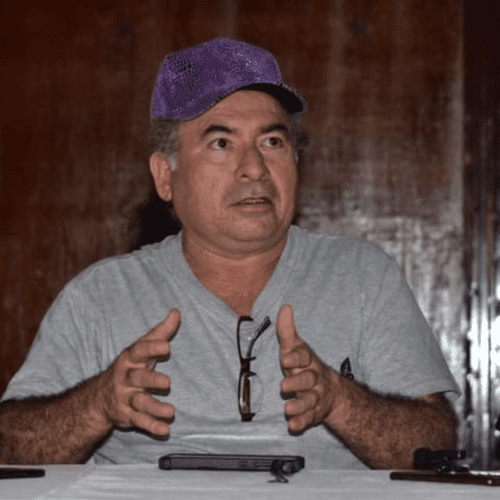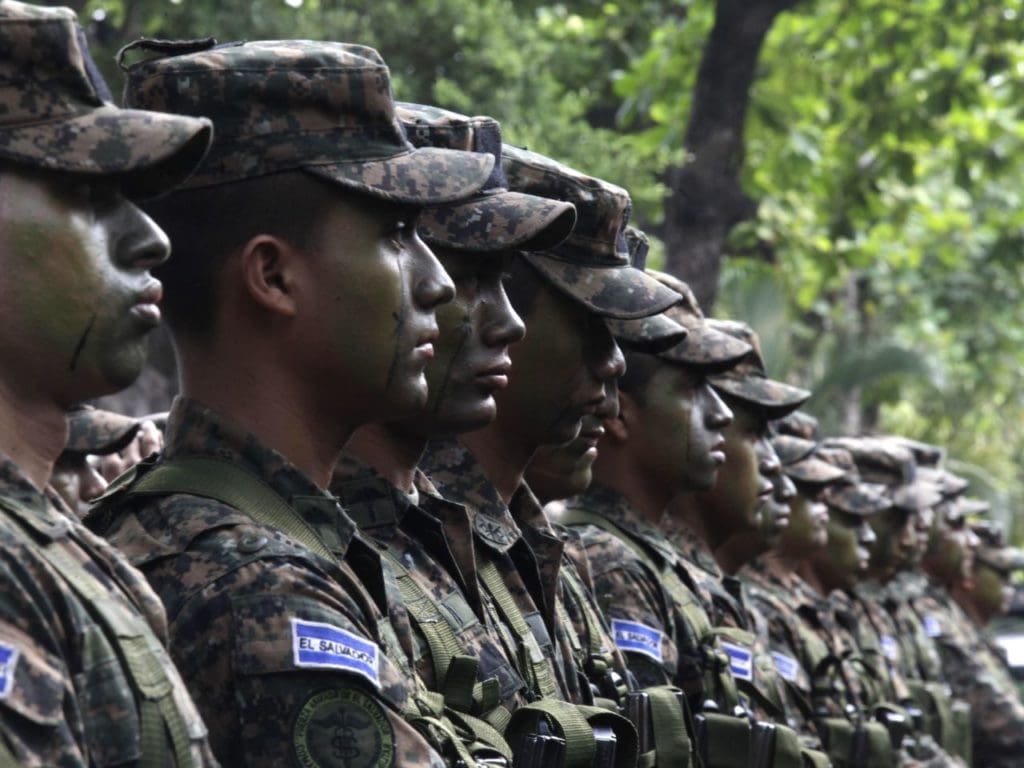Community lives in fear as military moves in, sparks horrible memories for one former guerrilla fighter
All these years later, watching the military move into Santa Marta struck fear in my heart and unleashed a torrent of terrible memories. Decades ago, soldiers wearing the same attire pursued and slaughtered my people; I waged war against them. Their presence all these years later feels like a latent threat.
- 2 years ago
September 4, 2023

SANTA MARTA, El Salvador — When the exception regime in El Salvador moved into my town, took over a kindergarten, and imprisoned some of our community leaders, it stirred up old fears inside of me. They simply marched in one day, set up shop, and began flaunting their power.
[The president of El Salvador instituted an exception regime and suspended constitutional protections of citizens in the name of fighting gangs, leaving many citizens terrified.]
In Santa Marta, our community has managed to control the outbreak of gangs on our own. Bound by unity, we maintained relative calm, unlike other communities nearby. The rise in gang violence, a shifting tide of projects aimed at mining on our lands, and this blanket militarization of the government leaves me incredibly uneasy.
Read more conflict stories at Orato World Media
Seeing military personnel march into my town put me right back in the war
When I was young, I watched my brothers battle and sacrifice their lives for El Salvador’s Civil War. Their courageous actions had a major impact on me. [During that war, in 1981, the Salvadoran military murdered 1,000 civilians, most of whom were unarmed villagers, women, and children.] Memories of the massacre haunted me and at the same time, forged my path in life. That horrific event led me take up arms and join the guerrilla fighters at just 14 years old.
My friends and I left to fight together, strengthening our bonds. The moment I stepped into battle; I knew exactly why I was there. No one had to explain it to me. Driven by a vision to transform the living conditions of the people of my country, I made a conscious choice. I would give my life if necessary.
I served as a guerilla fighter in El Salvador for four years. Then, at just 18 years old, a grenade exploded nearby and launched a piece of shrapnel into my leg. As the fury of battle unfolded around me, I did not feel pain or fear. Adrenaline masked everything and the strike from the grenade felt like any other blow.
Time wore on and soon, the pain began to surge. Something was wrong. The delay in receiving medical attention led to severe complications and my days as a fighter ended abruptly when they had to amputate my leg.
All these years later, watching the military move into Santa Marta struck fear in my heart and unleashed a torrent of terrible memories. Decades ago, soldiers wearing the same attire pursued and slaughtered my people; I waged war against them. Their presence all these years later feels like a latent threat.
As they sieged our town and arrested people with no investigation, I began having nightmares
When the fighting finished for me, I turned my focus to other tasks. I carried on until the war ended, finding myself in Santa Marta, a community knit together by displaced people. In Santa Marta I was surrounded by Honduran refugees and former guerillas like me. We worked together to try and reintegrate into society.
Our roots, which sprung up from the Salvadoran social struggle stretching back to our youth, formed a shared identity. I nurtured my family, and in time, began to pour my energy into community work. When the military arrived recently, I felt a sense of helplessness. No longer a young man, all I could do is watch, unable to resist or confront them.
As the military operations swept through overnight, thousands of soldiers spread far and wide, searching for what they claimed were gang members. At first, our everyday lives remained unaffected. I went to work, but the sights and sounds of soldiers and the helicopters overhead made me feel that 14-year-old boy again.
When I dream of explosions and gunfire, it startles me awake. All those sensations resurfaced during the military siege of Santa Marta. Shock and fear became my constant companions, leaving me on edge. When the government jailed five members of our community with no investigation, it amplified the risk that the rest of us could be targeted.
We are safe now, but I worry about the future of El Salvador
When I was young, my friends and I took up arms to take power back and transform society into something fairer for the people. We did not achieve that end, and now, at this stage of my life, I feel frustrated. I look around and the youth seem to be co-opted by the government, which brazenly demonstrates their willingness to violate human rights without a second thought. Armed with a relentless propaganda machine, they manipulate public opinion to maintain popularity.
Even though it feels like many of our achievements during the civil war have been discarded, I would make the same choice again. The effort was worth the struggle. The exception regime has since left our community, and no one was attacked. When they pulled out, I felt relieved. “Perhaps they have a shred of respect for us,” I thought, but I still harbor concerns the situation could worsen.



































































































































































































































































































































































































































































